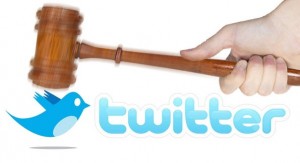$50,000 Twitter Lawsuit
By Kris Themstrup In Blogging News, Social Networking, Web 2.0
On July 27th, less than a week ago, Horizon Group Management of Chicago, a property management company, filed a lawsuit against Amanda Bonnen, one of their former residents, for an update she posted on Twitter. Specifically, the update referred to the realty company and mold in Bonnen’s apartment: “Who said sleeping in a moldy apartment was bad for you? Horizon realty thinks it’s okay.” The lawsuit, filed in Cook County court, asks for $50,000 in damages, alleging that her statement damaged the company’s business reputation.
Putting personal opinions of this lawsuit aside, it raises serious questions about what we can and can’t be held liable for on a public forum, and what exactly Twitter can be called in relation to those forums. Many people tweet complaints about products, services and companies. Many companies embrace Twitter as a gateway into the real-time pulse of their customer base, and respond accordingly. Comcast, for example, solves many technical questions and issues via Twitter and have benefited from being known as a tech-savvy and customer-friendly company, meeting their customer base on their turf, and helping out accordingly. Contrast that to Horizon’s handling of this issue (specifically with legal papers) and there has been quite a backlash of sorts online, with many people stating the obvious PR nightmare this has caused for the property management company and weighing in with opinions of how it could have better been handled.
At the root of this story is the simple question: What is Twitter? Is it like a blog, where the writer can be held responsible for certain statements made, especially those in a defamatory manner? Or is it more like a public forum, an opinion, or stream, where simple conversations take place on a network? This is a very important question, as the answer will probably define whether statements like the one made by Bonnen can be considered libel, or a written defamation. Of course we are guaranteed our free speech rights even in electronic media like blogs, Facebook and Twitter, there still is a measure of accountability.
Regardless of your position on this issue, cases like this set to define limits online where none have been propose before. I know it’s got me taking a second look at any negative information I consider publishing.
P.S. A Little Twist: At the time of the tweet, Bonnen only had about 17 followers. Horizon was monitoring her tweets because she was currently suing them for some unrelated issues.


No Comment